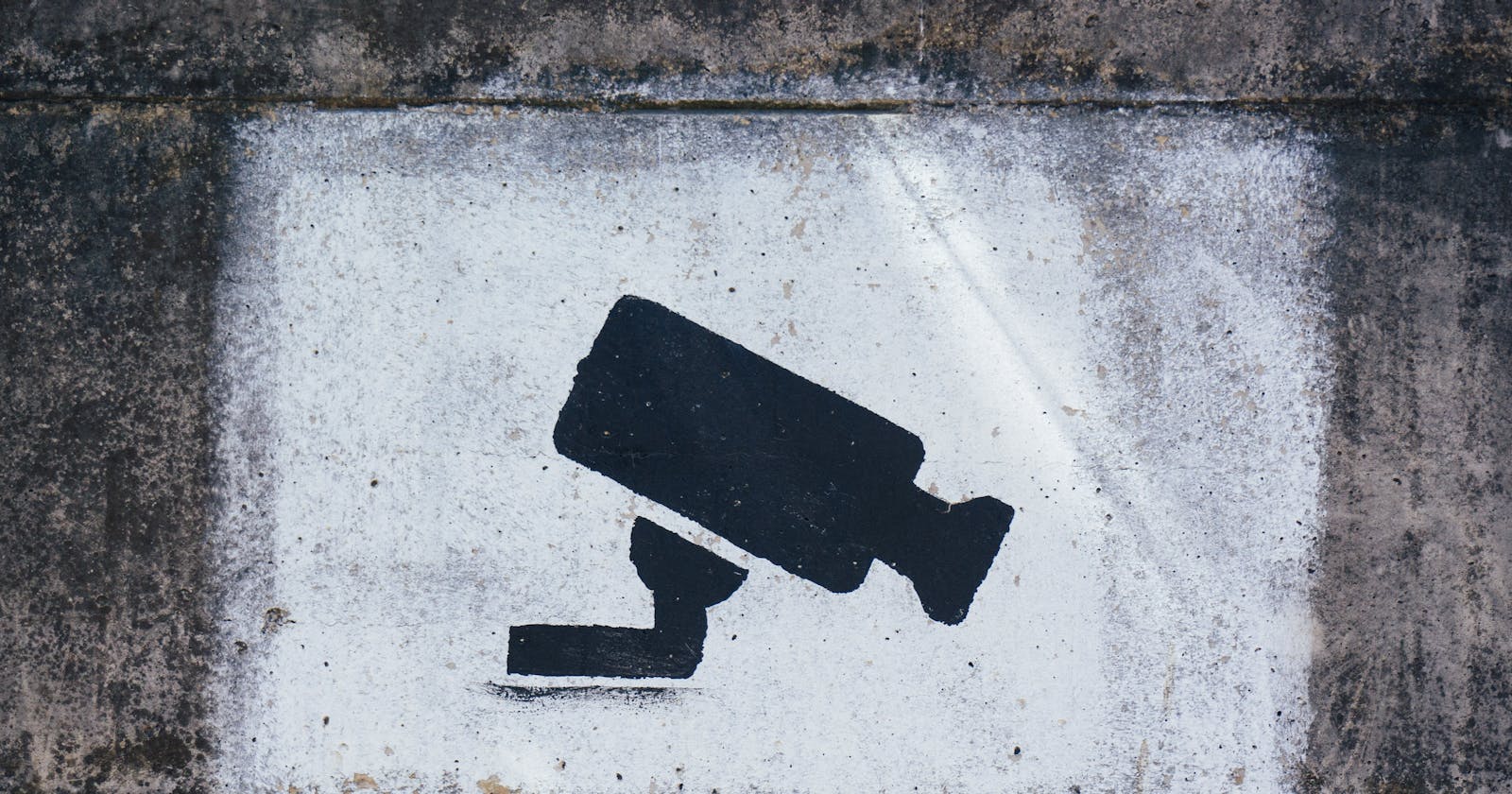The Social Dilemma opened our eyes to the way social networks operate. While many can argue they do not have anything to hide, giving machines power to understand and predict you better is something I am not comfortable with. I get irked when I see advertisements for Marvel T-shirts moments after I discuss getting a T-shirt around my phone. I made a couple of changes to my online life. Next up is the Whatsapp agreement. Yes, WhatsApp still cannot read your chats with friends and family, but they can tap into conversations with business accounts, and share that data with 3rd party. So what do we do now? Here's my list of online changes that I follow and would recommend.
Web browser and search engine
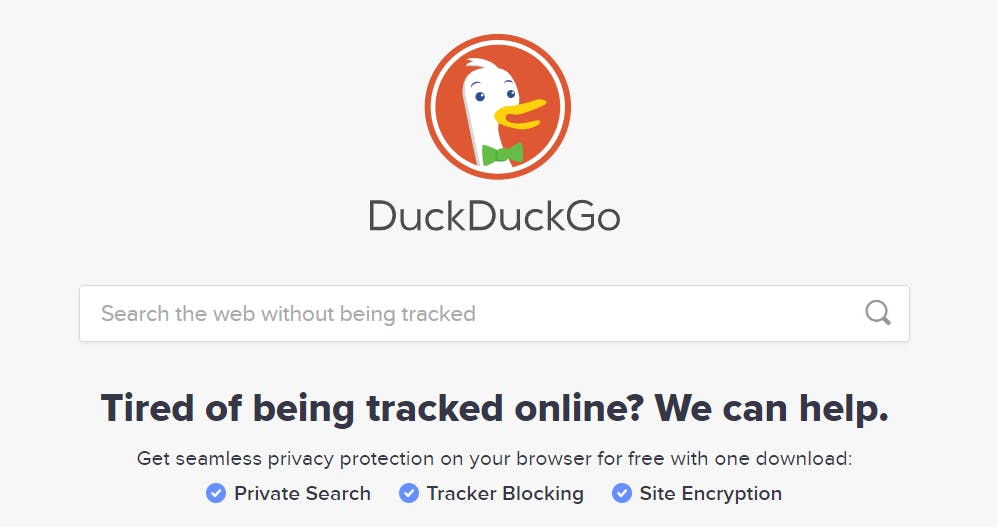 DuckDuckGo is a private search engine and also has a mobile app. It does not track user queries. What this means is that you will stop getting all the customized results you saw on Google, which in turn translates to you spending a few more seconds to find your result. Does it replace Google? No. There are times I have a hard time finding a result, in which case I try Google. But now I give Google maybe 1 in 20 searches.
DuckDuckGo is a private search engine and also has a mobile app. It does not track user queries. What this means is that you will stop getting all the customized results you saw on Google, which in turn translates to you spending a few more seconds to find your result. Does it replace Google? No. There are times I have a hard time finding a result, in which case I try Google. But now I give Google maybe 1 in 20 searches.
Browser extension
I already used to have AdBlockPlus, and it is great at removing advertisements from sites, but it was not enough. I came across Privacy Badger, an extension that disables popular trackers.
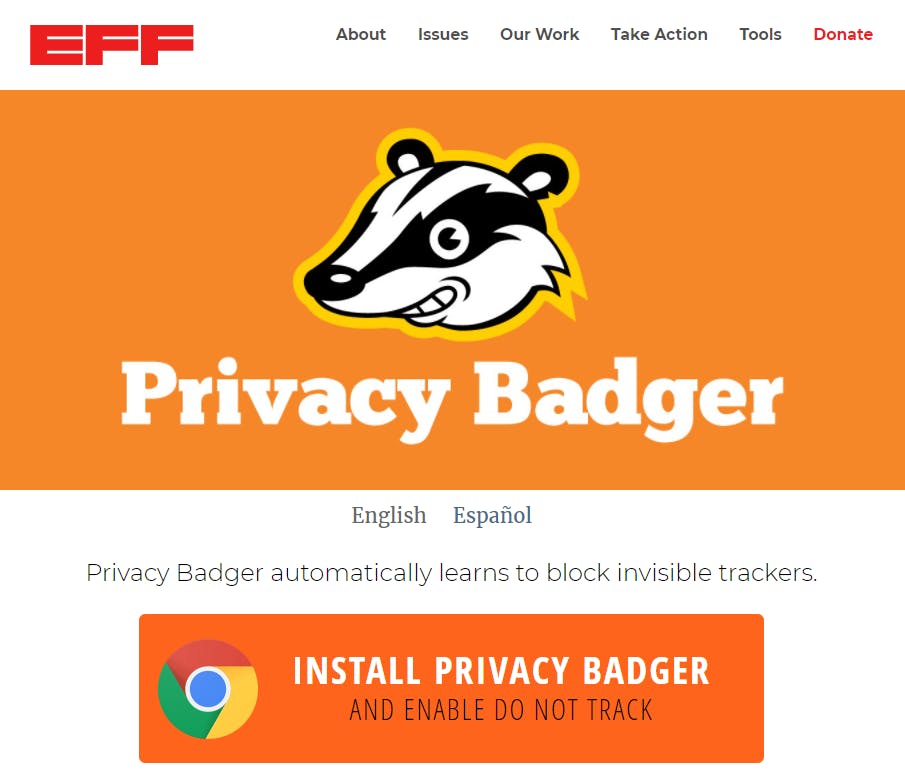
Social Media
Well, this one is tricky. You cannot just ditch Facebook/Instagram/LinkedIn/Twitter because you have all your friends and family there. So the next best thing you can do is time-bound those apps. Most smartphones come with a screen time limiter. Set the timer to say 30 minutes for Instagram and Facebook. Increase/decrease the time to your preference. Another thing to consider is getting polarised. You will often come across socially or politically charged posts and depending on how you engage with it, the platform will keep feeding you posts that mirror your belief system. An in-depth analysis is required before you take a drastic stand. Always listen to the other side of the story, check your sources, and do not recirculate "news" without validating authenticity.
Messaging
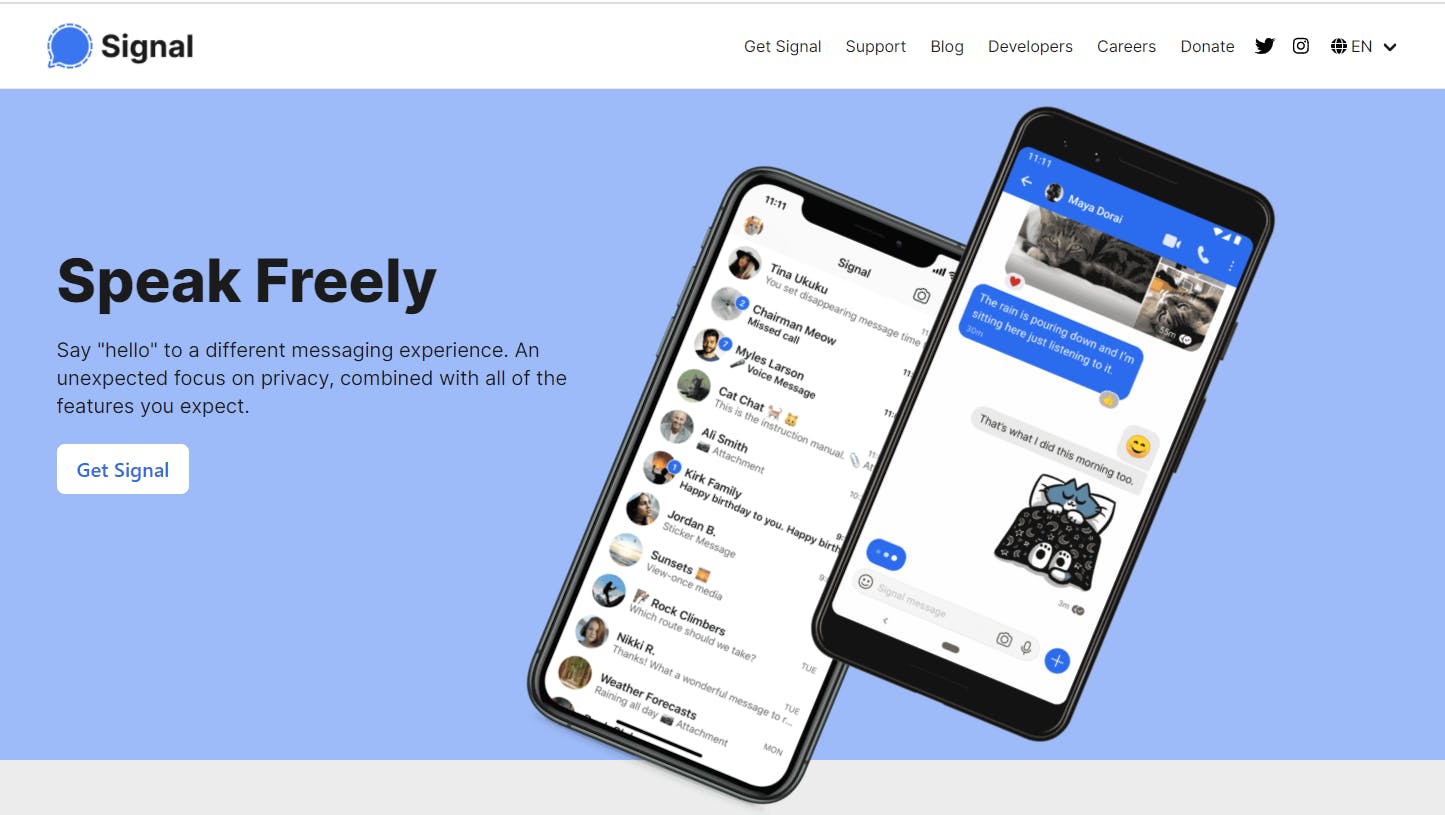 Lastly, addressing the elephant in the room, private chats. I had used Telegram, and it is quite functional. Due to the lack of group video calling feature, I switched to Signal. and its privacy features are amazing. Of course, it is end to end encrypted. All the messages are saved locally on your device, backup, if enabled is encrypted, photos, or files you send are encrypted and stripped of metadata. The list goes on. It is open-source and runs on donations.
Lastly, addressing the elephant in the room, private chats. I had used Telegram, and it is quite functional. Due to the lack of group video calling feature, I switched to Signal. and its privacy features are amazing. Of course, it is end to end encrypted. All the messages are saved locally on your device, backup, if enabled is encrypted, photos, or files you send are encrypted and stripped of metadata. The list goes on. It is open-source and runs on donations.
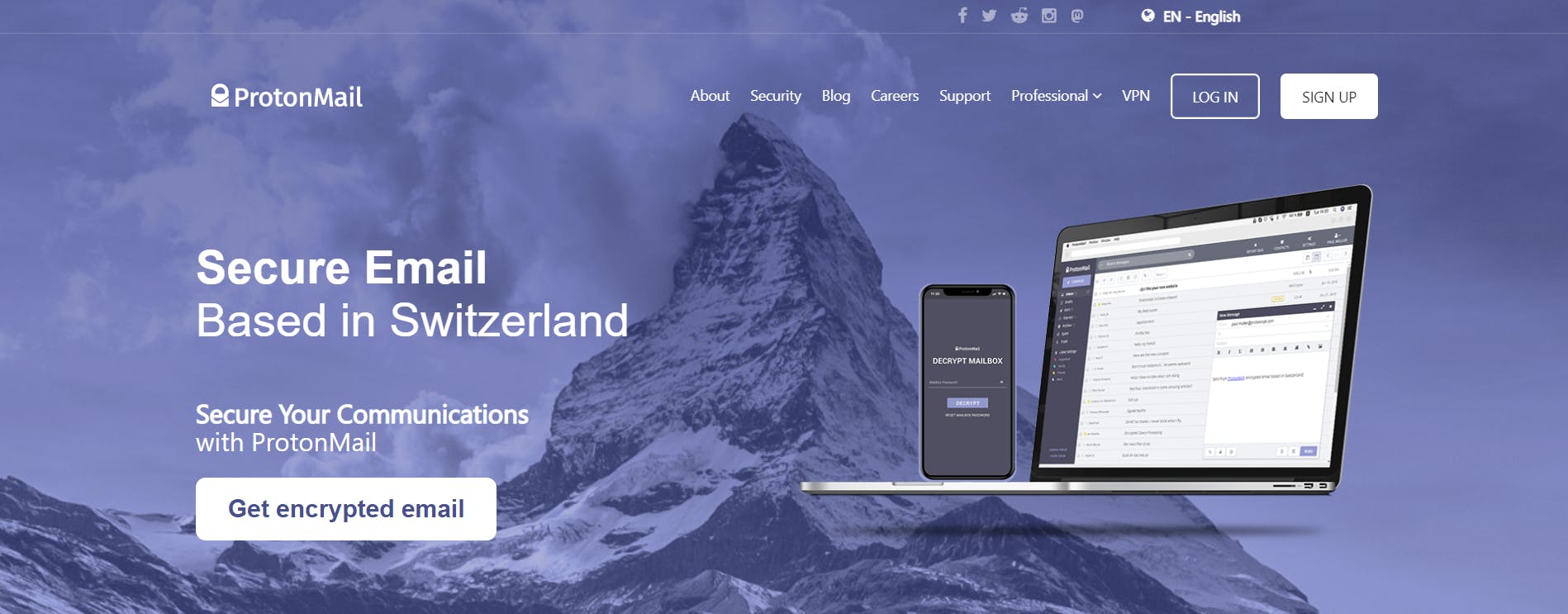 I am still in the process of exploration and might add more to this. I encountered ProtonMail and think it will suit my needs for now. The free plan has 500MB of storage and the monthly plans are a tad expensive.
I am still in the process of exploration and might add more to this. I encountered ProtonMail and think it will suit my needs for now. The free plan has 500MB of storage and the monthly plans are a tad expensive.
Government's role
Most companies have a separate set of rules when it comes to European countries. If you are a developer in a company that processes European data, you'll have encountered compliance training dedicated to GDPR (General Data Protection Regulation). The Government has taken stringent measures to ensure data about its people is not misused. More countries should take a stand and make a legal barrier against the monetization of private data.
Individual's role
Be aware of the applications you use. Glance through the data privacy section of terms and conditions. Know your biases, and take important decisions addressing those. Finally, shout out and contribute to open source projects that value data privacy. You as an individual have an important role in keeping the open-source community thriving.
Transition Summary (TLDR)
- Google -> DuckDuckGo
- Chrome (Mobile Browser) -> DuckDuckGo (Mobile Browser)
- AdBlockPlus -> AdBlockPlus + Privacy Badger
- Social Media -> Limit Time, Research sources
- WhatsApp -> Telegram, Signal
- Gmail -> ProtonMail
- Encourage the Government to take privacy seriously
- Contribute to privacy champions
[Cover Photo courtesy: Photo by Tobias Tullius on Unsplash]

